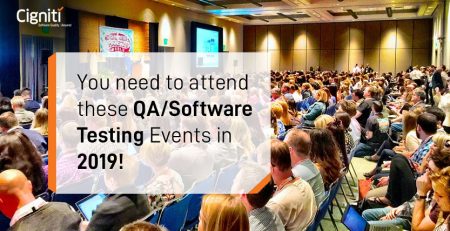Quality assurance – An imperative in the world of zero-touch technology
Touch. It is one of the fundamental modes of communication for humans. The ability to touch something is essential for substantiate its existence. A hand shake, a pat on the back, a hug, a fist bump, or a hi-five, all these were gestures of affection. But now, a touch is something that we all want to avoid at all costs, for touching is one of the primary ways in which the COVID-19 virus spreads around. People may avoid such affectionate touches until we have a control over the pandemic. However, there are numerous essential activities that require touching, for example, withdrawing cash from an ATM machine, buying groceries, or something as trivial as calling an elevator, opening a door, or signing for a delivery. As the virus is known to survive on different kinds of surfaces from anywhere between a couple hours to up to 5 days, people are naturally suspicious and scared to touch any and all kinds of things.
With the help of zero-touch technology, which is also known as no-touch, touch–less, and contactless, it can become possible to perform the necessary activities without exposing oneself to a possible contagion. However critical this transition from a high-touch world to a high-tech world is, it will not be an easy one. While there are a few sectors and areas where no-touch technology has been implemented before the COVID-19 crisis, but the usage was scarce and scattered. Now, we need the implementation to be widespread and prominent in every aspect of our lives.
The employment of zero-touch technology can facilitate a distanced delivery of goods, faster checkouts at retail POS, contactless cash withdrawals at ATMs, and automated calling of elevators. For example, Walmart is offering no-contact services for payment, pickup, and delivery to the customers. A logistics technology company, AxleHire, has introduced no-touch delivery technology which allows their customers to sign for packages on their smartphones through the company’s app and receive the deliveries while maintaining the required physical distance from the delivery personnel. There are several similar examples where organization in every sector are rising to the occasion and developing the required solutions for instilling a no-touch culture in their service offerings.
More than convenience, the zero-touch technology is about establishing trust in the customers who are panicked and dubious of every object and surface that do not belong to them. Therefore, having a zero-touch technology software application can empower every business to not only retain their customers but also imbibe a greater sense of trust and safety among them. However, the technology implemented should be secure, smooth, and robust, which can be guaranteed by software quality assurance.
A new era of customer interaction
A recent survey found that about 74% of people have either worn gloves to use a public touch surface or wiped down a public touch point. About 80% of the surveyees believe that they will behave differently while interacting with a public technology that they have to touch. This would involve washing or sanitizing their hands immediately after using public touch screens for 51% of the surveyed people, using contactless payments where the limit allows for the 48% of them, and less usage of cash machines for about 25%.
With the considerable development in the touchless technology in the last ten years, we have voice-based technology such as Alexa or Google Home, haptic technology involving kinaesthetic communication or 3D touch, and Radio-Frequency Identification (RFID) & Near-Field Communication (NFC), which can be developed and expanded to develop a sanitized, touchless ecosystem. The healthcare sector is also turning to remote monitoring devices to deliver care to the non-coronavirus patients. Conferences and events are happening online through virtual platforms. We are practically living a holistic digital life.
Voice-based platforms are now mainstream and have become prominent in our lives. However, having a Voice User Interface (VUI), instead of a Graphic User Interface (GUI), it is comparatively more challenging to test them accurately. With indefinite number of test cases, VUI testing requires a thorough test plan with the understanding of the voice request lifecycle for the Application under Test (AUT) as well as considers the multiple APIs that the application interacts with for the maximum coverage.
Software testing is also the key to successful RFID implementation. Based on the different environment of an application, testing allows selection of the ideal RFID tags, readers, and antennas. RFID testing ensures that the data captured is integrated and reflected across the ERP system in real-time. RFID readers and tags should be well in sync for facilitating accuracy in the data collection process.
As the data processing and interactions with ERP systems or several APIs need to happen in real-time, the no-touch software applications should undergo end-to-end software testing which assures the software’s performance under heavy load, high security, compatibility across devices, integration with all the units, and smooth functioning of the features.
Assuring business continuity with zero-touch technology
As zero-touch technology becomes essential, software testing assumes higher importance in ensuring that the application functions seamlessly. With strengthened testing centers of excellence (TCoE), domain competency groups, and industry experts, Cigniti is committed and prepared to help organizations across industries to tackle with the current crisis with secure, reliable, robust, and high-performance applications. By performing end-to-end software testing services on your application, we empower your digital presence and enable you to gain business continuity even in the times of crises like this. To know how we are helping your industry deal with the COVID-19 crisis while minimizing the overall impact, read our COVID-19 response resources.
Schedule a discussion with us to speak with our experts and learn how we can help you overcome your software testing related challenges.





Leave a Reply